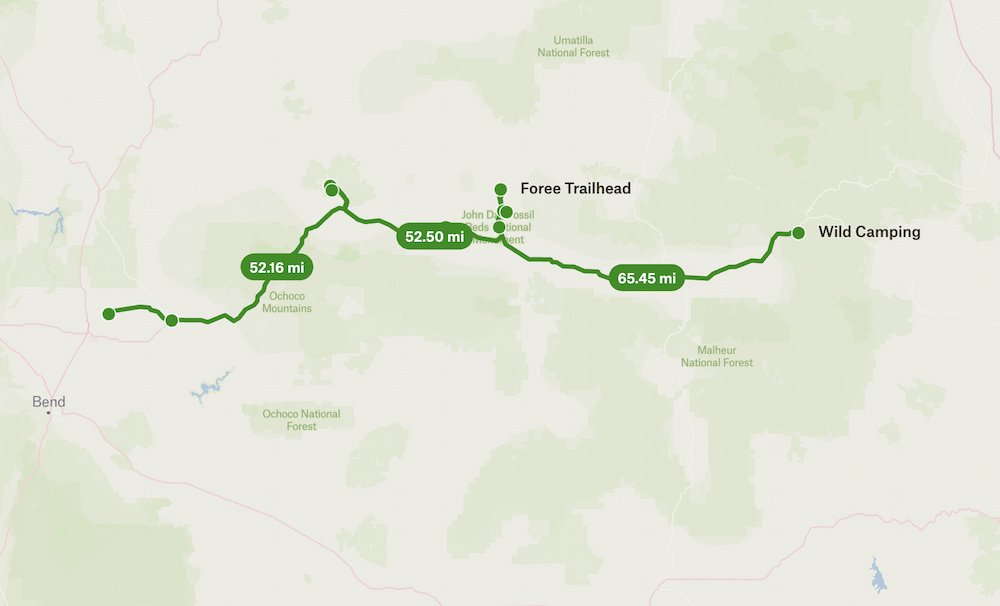We had slept in pitch black, being surrounded by towering forests and hearing nothing but the sounds of a stream when we woke up in the morning. It's kind of eerie in a way to be in such darkness, where we couldn't even see our hand in front of our face going to bed! This experience never happens in a city, because there's always some kind of light pollution outside (and even inside the home from electrical appliances, etc).
Fortunately there were no signs of bears, so after breakfast we continued to John Day Fossil Beds National Monument. Along the way, we passed some cute towns, which looked like they were from a bygone gold rush or mining era (like many we've seen so far on this trip, in states like Colorado).
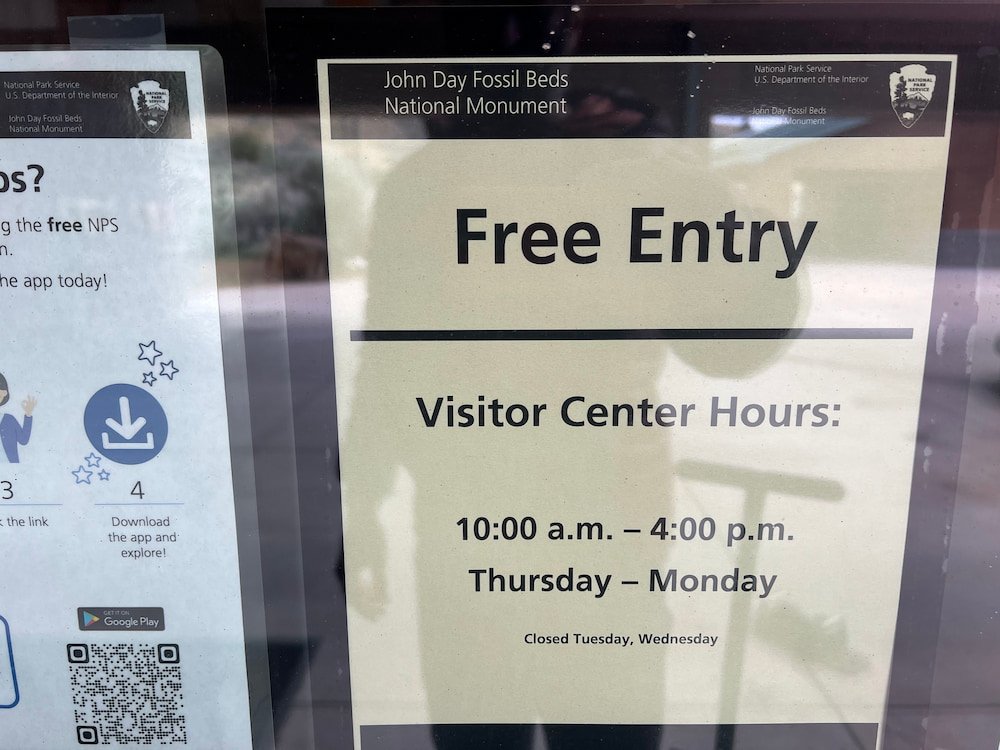
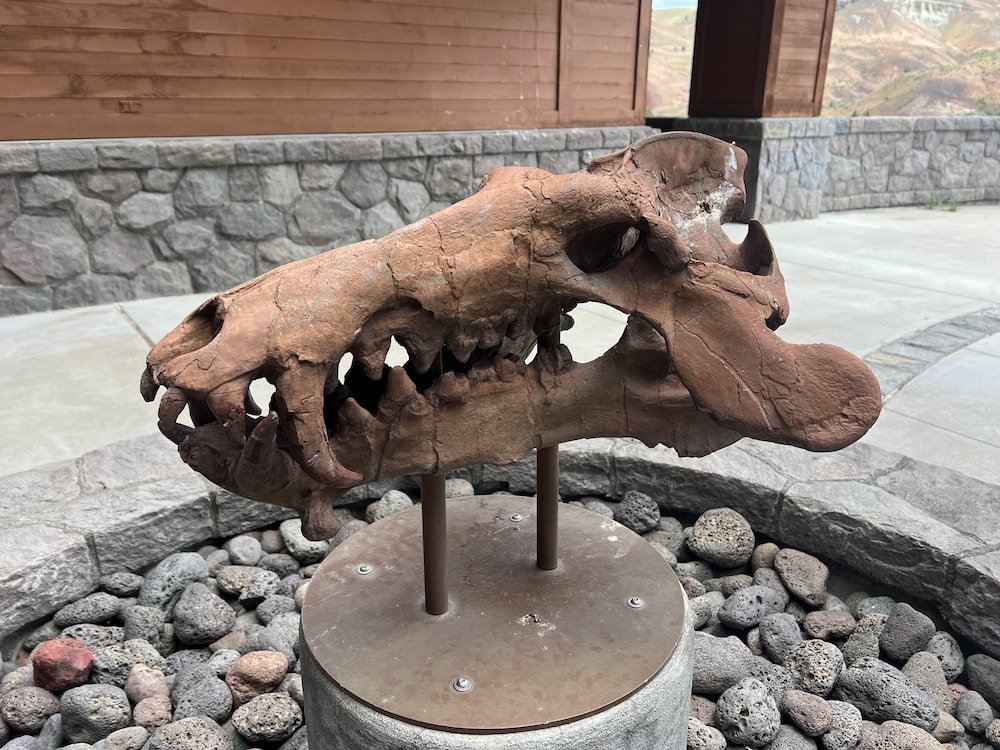
Drove to John Day Fossil Beds National Monument – through some cute towns. Unfortunately the visitor center is closed on Tuesdays and Wednesdays, which we only realized when we arrived. We hadn't checked beforehand so it was our fault, but it's the first time we'd encountered these opening hours for a national park visitor center since starting our trip! From what we could see, there were some fossil displays inside, and the visitor center looks out onto an incredible view of the multicolored hills, with red, grey, blue and green tints cutting across them.
Exploring Sheep Rock Unit: Blue Rocks, Fossils and A Snake!
While it's one park, John Day Fossil Beds is made up of 3 units: Clarno, Painted Hills, and Sheep Rock. Sheep Rock is closest to the visitor center, but similar to when we visited Canyons of the Ancients National Monument, there's a significant drive between each area.

One of the most popular hikes in Sheep Rock is the Blue Basin Overlook Trail, which is exquisite! It's a short hike there and back, and along the way we saw fossils of different animals that roamed here millions of years ago. There were signposts that 10 species of dogs had lived in the area 24-29 million years ago, as well as oredonts, a sheep-pig-camel-like (!) animal that thrived for 30 million years before going extinct, and has no modern-day descendants.

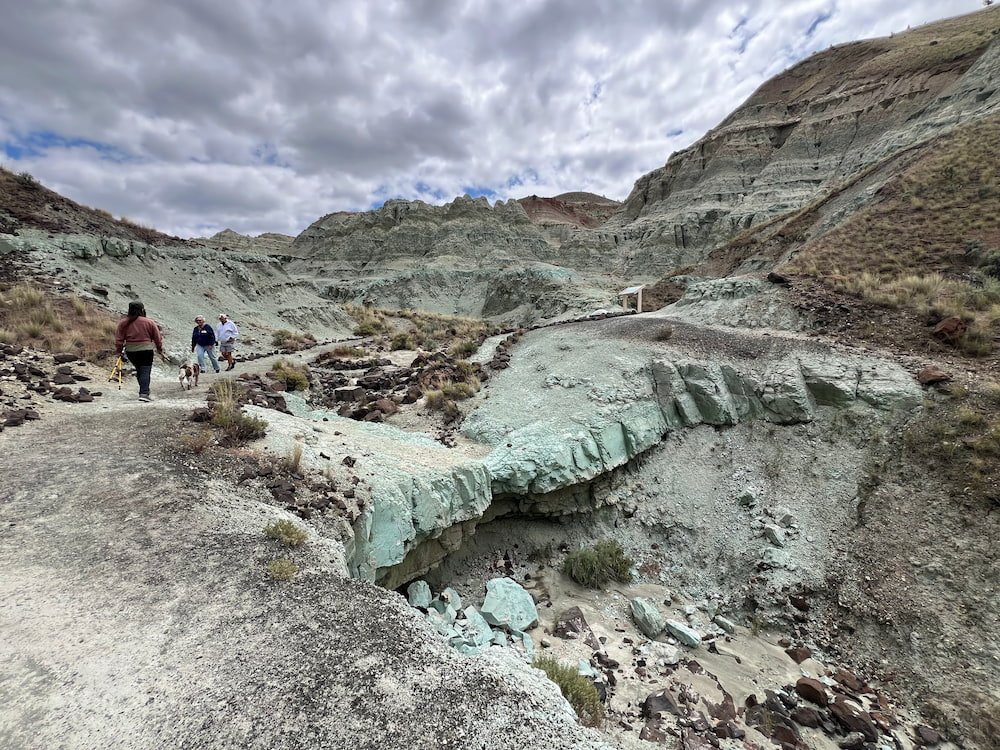
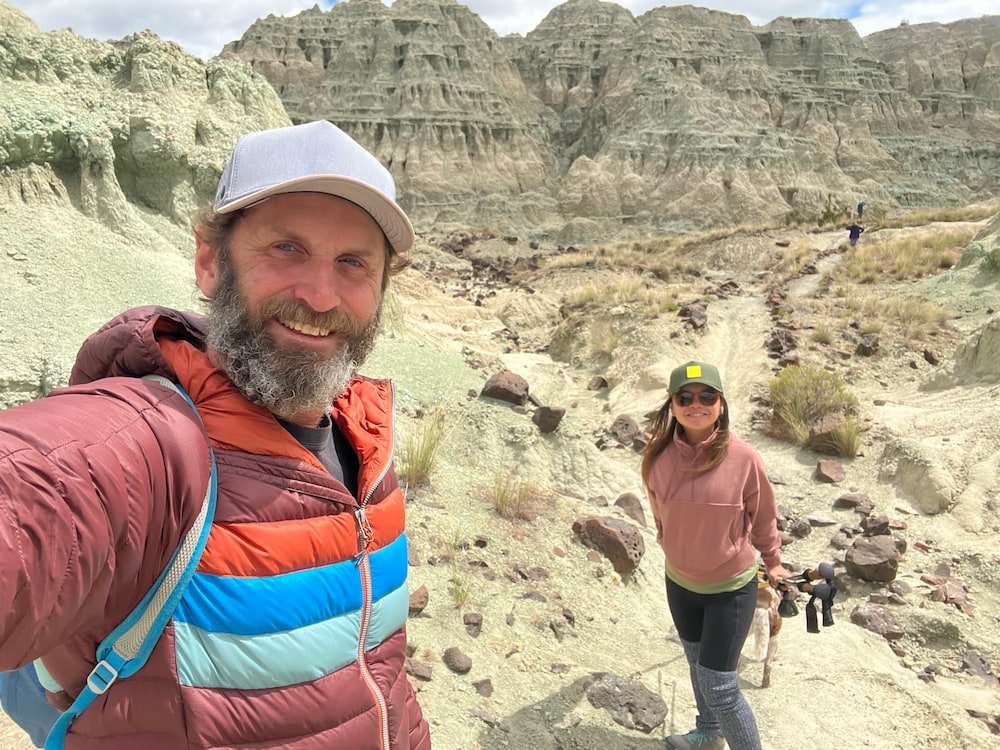
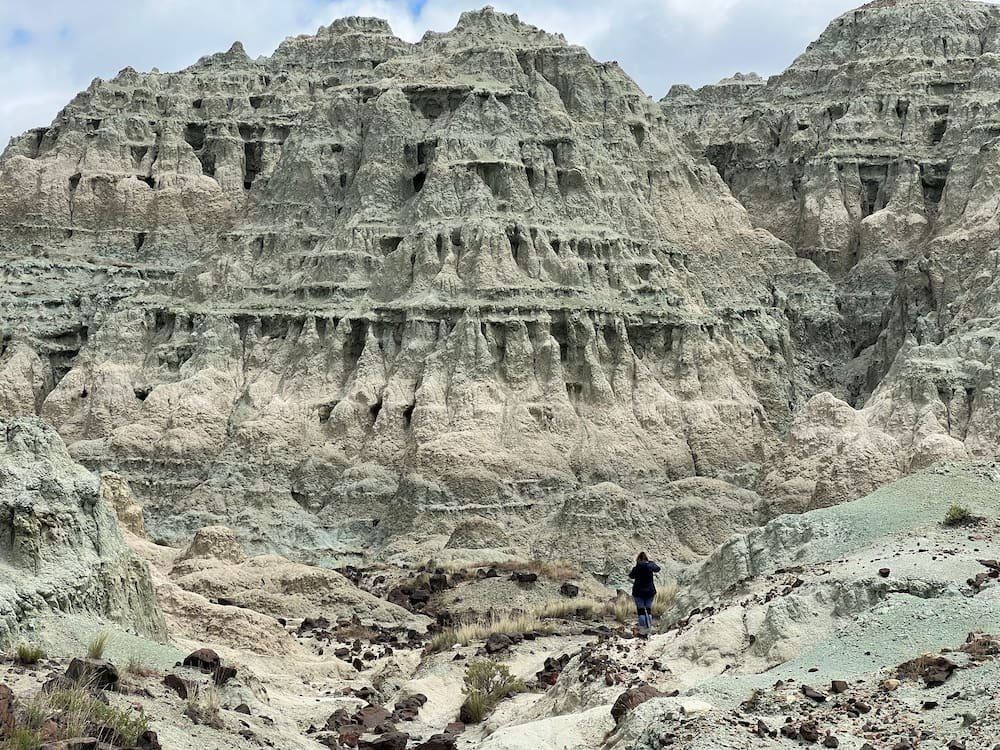
After traveling now for almost 100 days (!), we've seen so much variance in the landscape, but eastern Oregon was yet again something new and unique. We met a French couple who also commented that they'd been to countries like Iceland with its rich volcanic terrain, and the land here was unlike anything they'd ever seen. The rocks were bright green and blue! The vibrant colors come from the mineral celadonite that has surfaced after several volcanic eruptions. The rock formations also had fascinating signs of erosion, including little holes and slices in the rock, as if someone had taken a knife and scored across the rock horizontally.
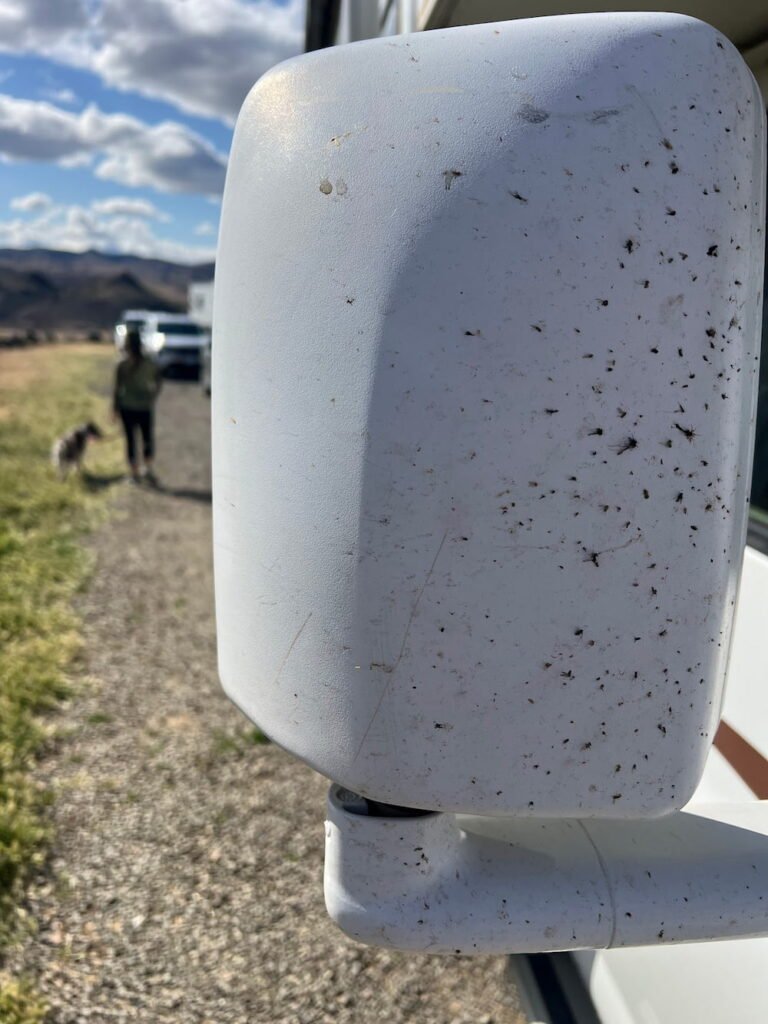
To top this all off, on the way back, Michael also saw a lizard, and a rather long snake slithering through the bushes! We of course kept Sheila away from these animals so they wouldn't scare each other.
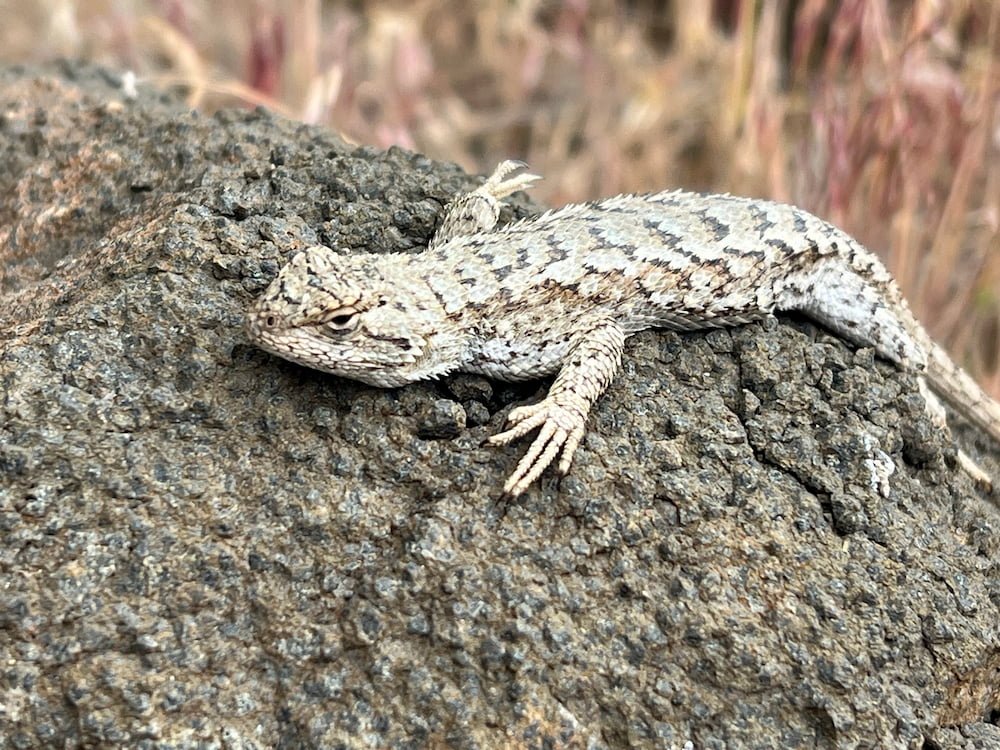
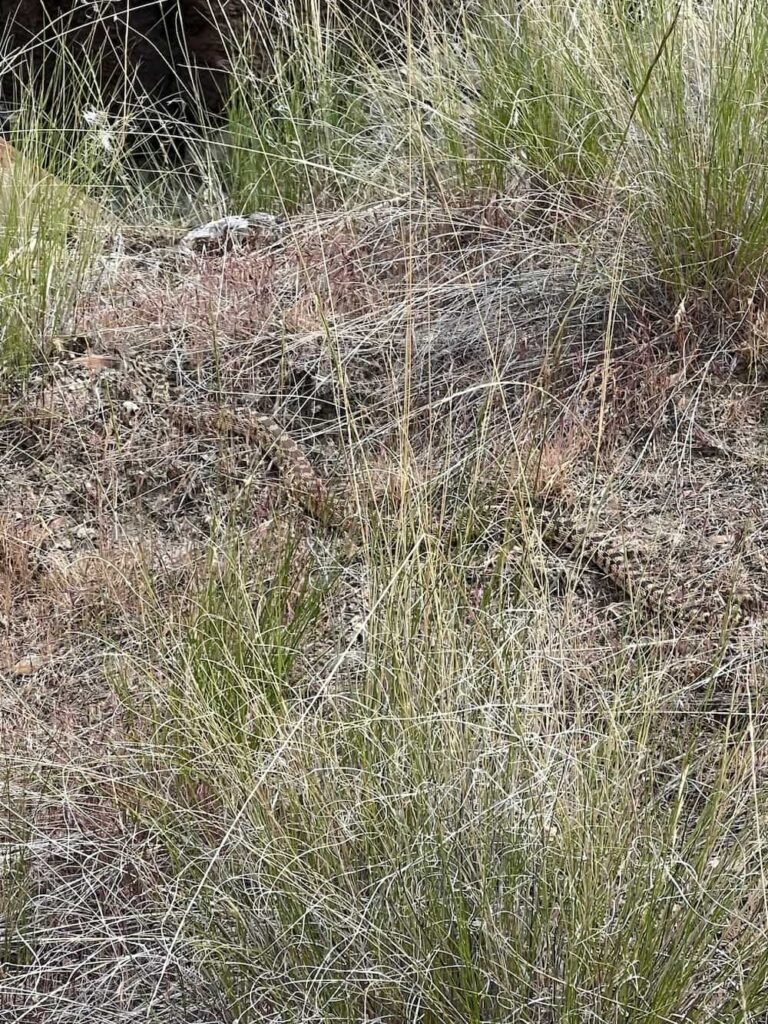
At Sheep Rock we also drove to another area, Foree, where we had lunch before hiking a short trail, where we could see more of the sculpted green claystone that had risen to the fore over millions of years. The range of colors that we could see straight in front of us: green, blue, brown rocks below a bright blue sky with dramatic white fluffy clouds on a sunny day, was absolutely stunning.
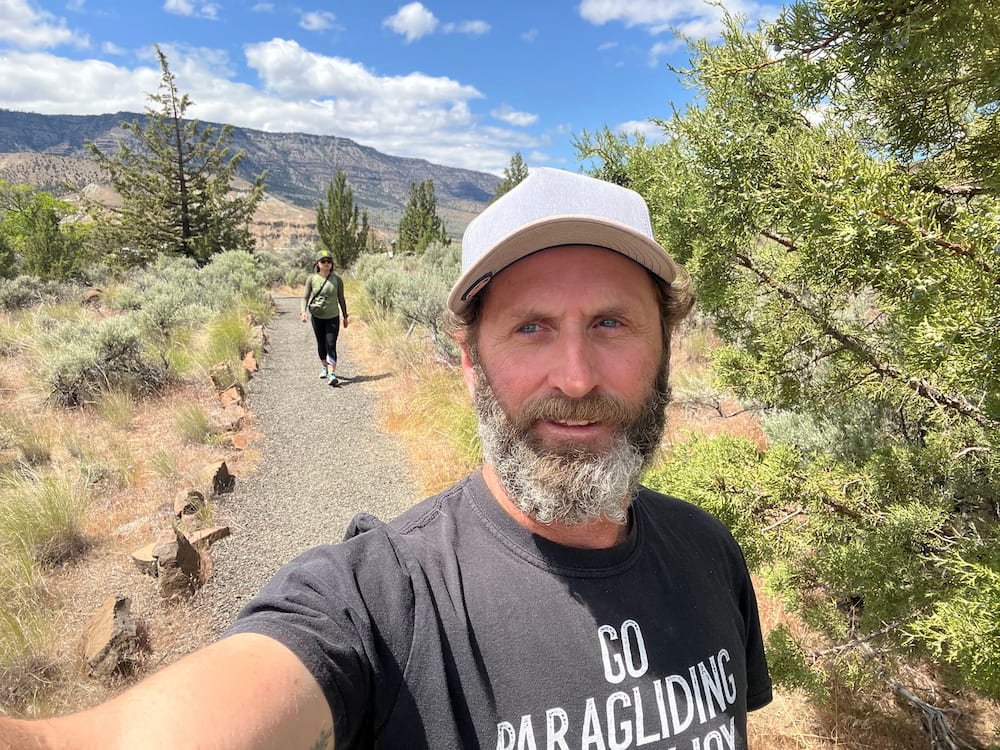
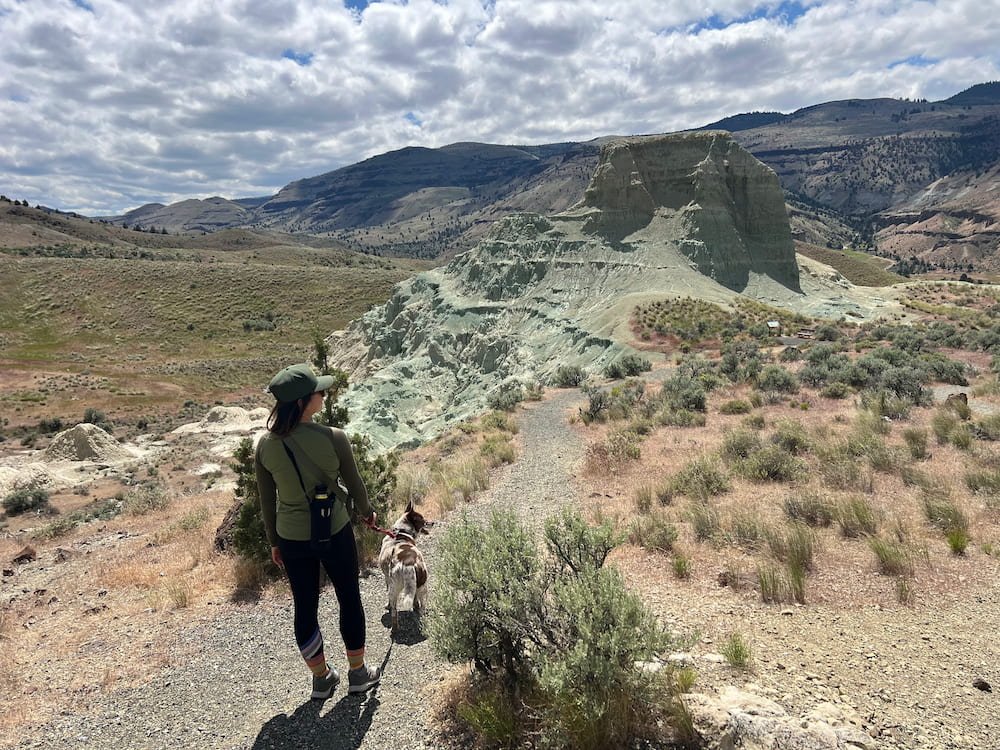
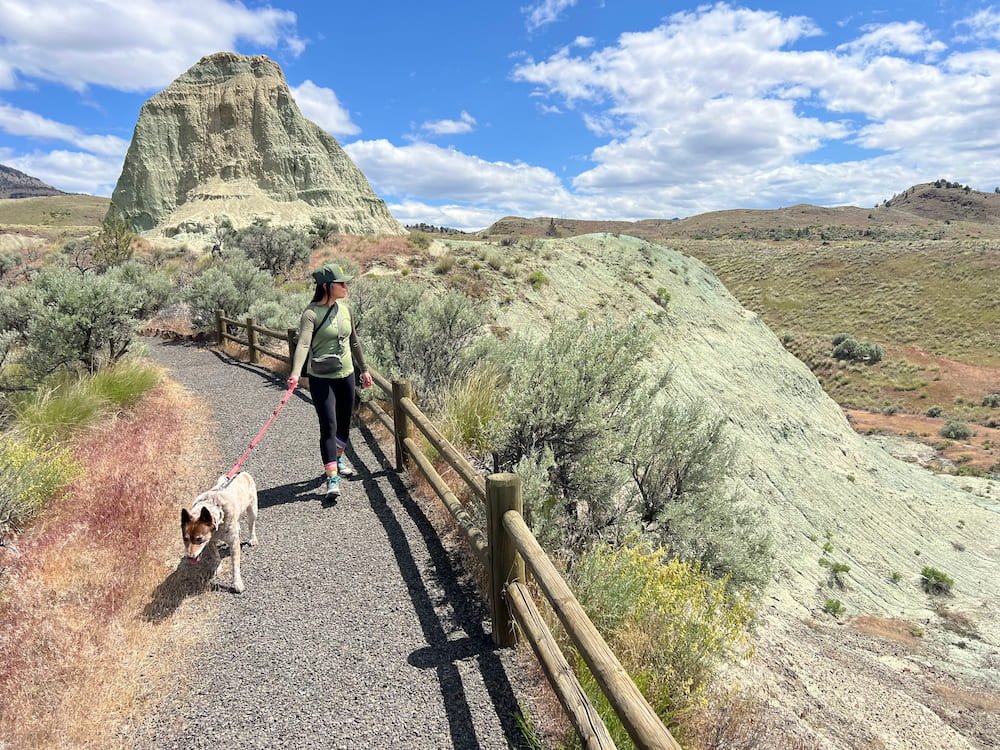
The Vivid Beauty of the Painted Hills
The Painted Hills area is about an hours' drive away from Sheep Rock, and the roads can be quite windy. As we approached, we turned a corner and were suddenly greeted by the sight of an awesome, bright red rock towering in front of us. It was so spectacular that we pretty much gasped upon seeing it; we can understand why the Painted Hills are is the most popular of the 3 areas!
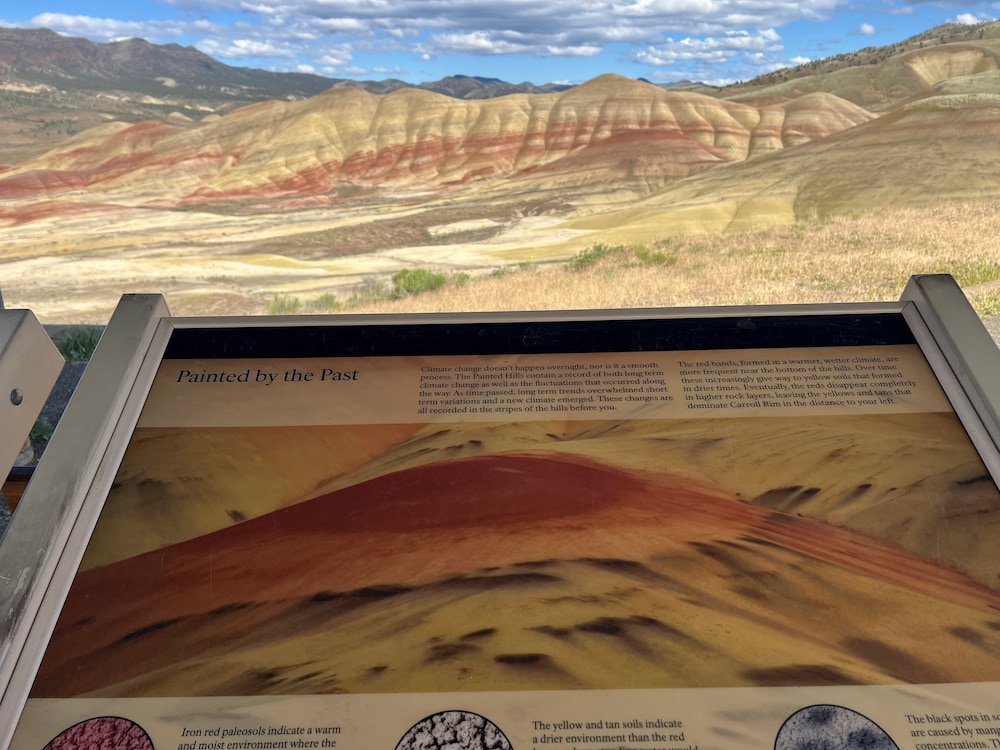
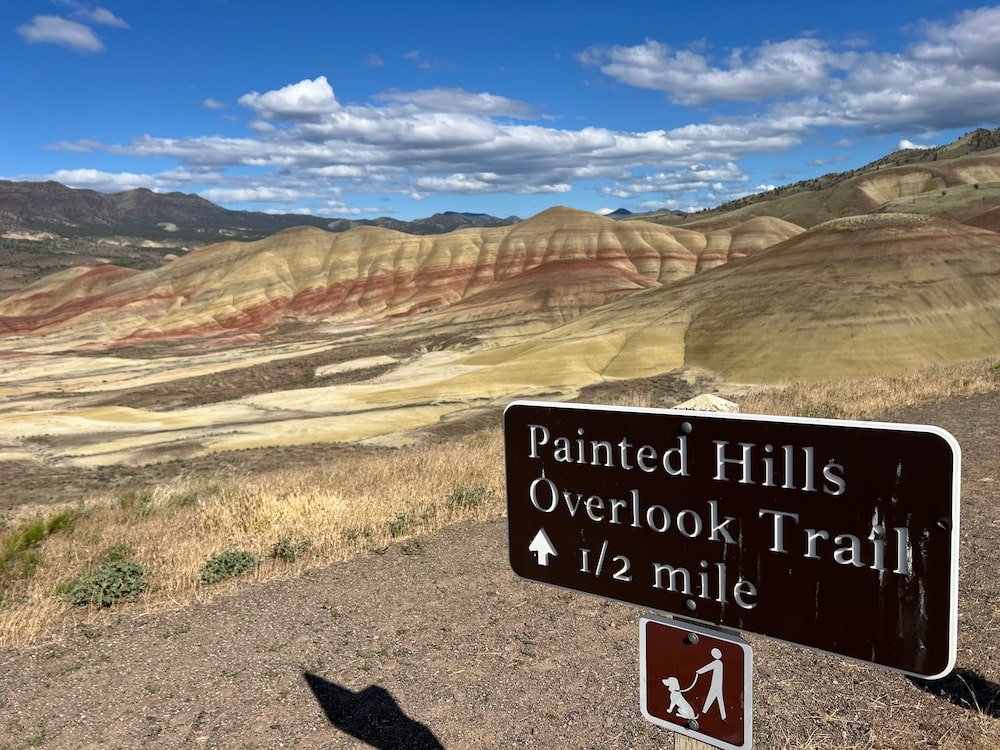
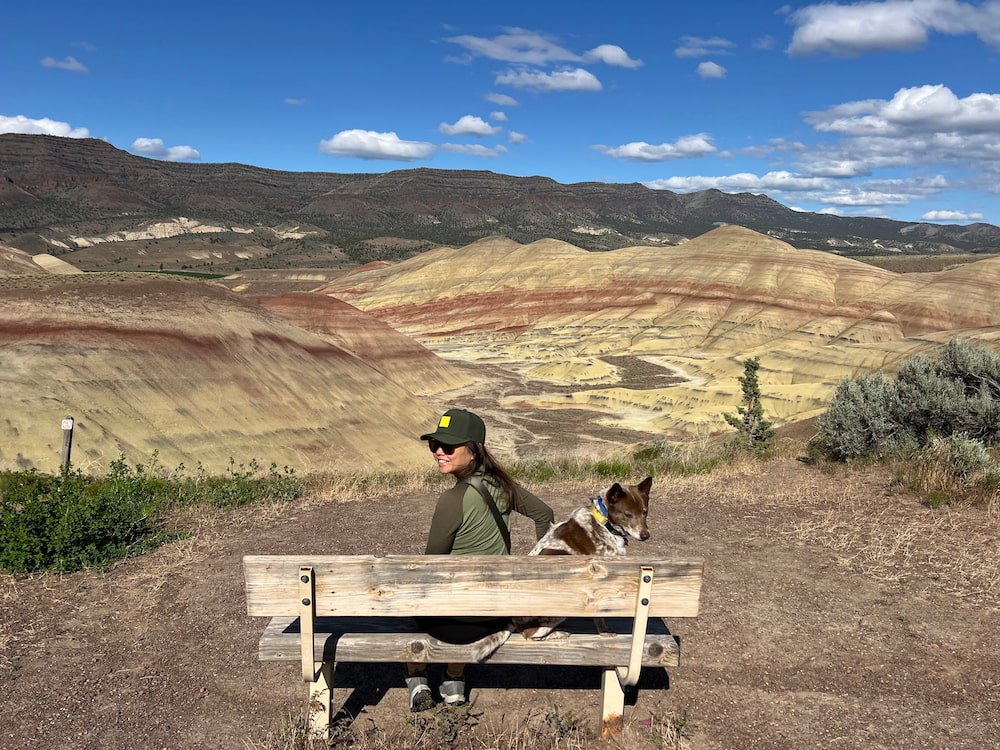
The whole area is filled with hills that are yellow, gold, red and black, and as we arrived in the afternoon, the sunlight was bringing out their colors even more. We parked our car in a lot where we could do a short walk overlooking many of these hills, which looked like they were painted with watercolors, with a clear line of red cutting across many of them. It would be wonderful to see the Painted Hills at different times of day and across the different seasons, as they'd look very distinct each time.
A short drive away is the Painted Cove Nature Trail, and the hills here are also a range of colors, with more browns that make it somewhat reminiscent of the Chocolate Hills that we've visited in the Philippines. Here, there's a boardwalk that took us around a few hills. Frustratingly, even though there are signs that request that people stay on the trail, there were signs of people stepping on the fragile hills--likely for a photo of themselves on it. Please don't ruin the experience for others in the future by doing this!
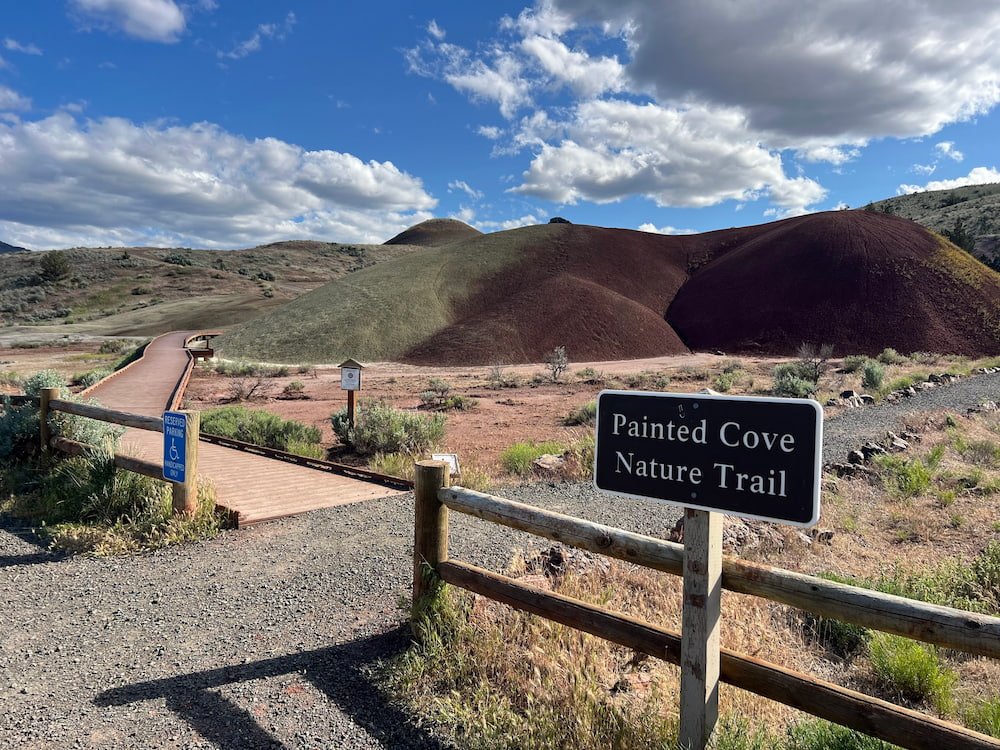
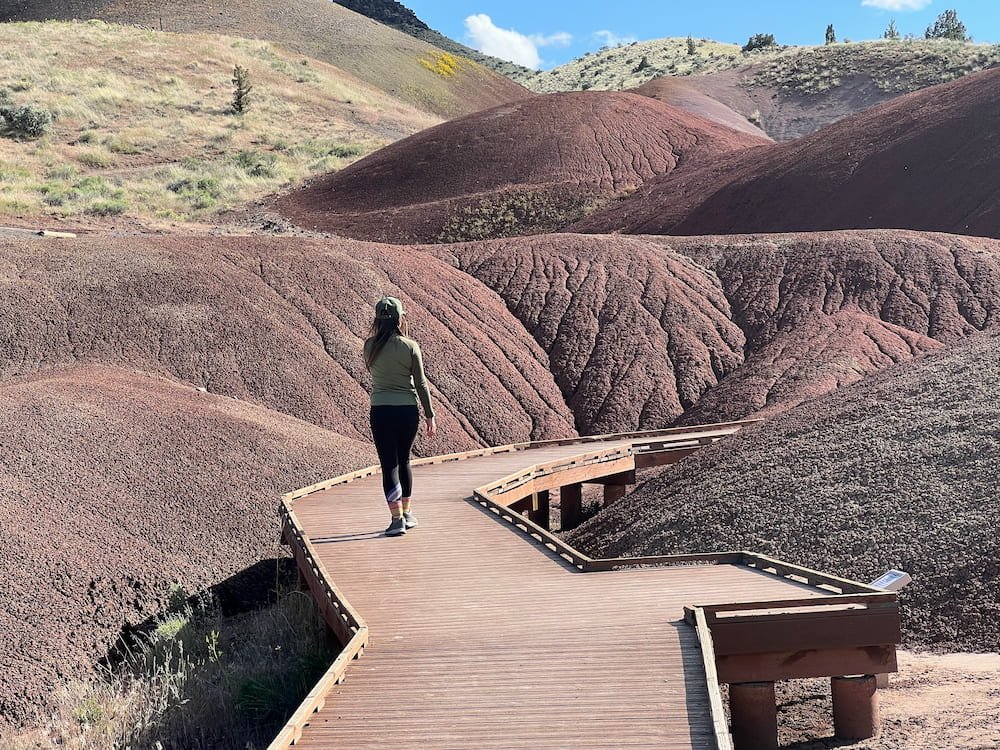
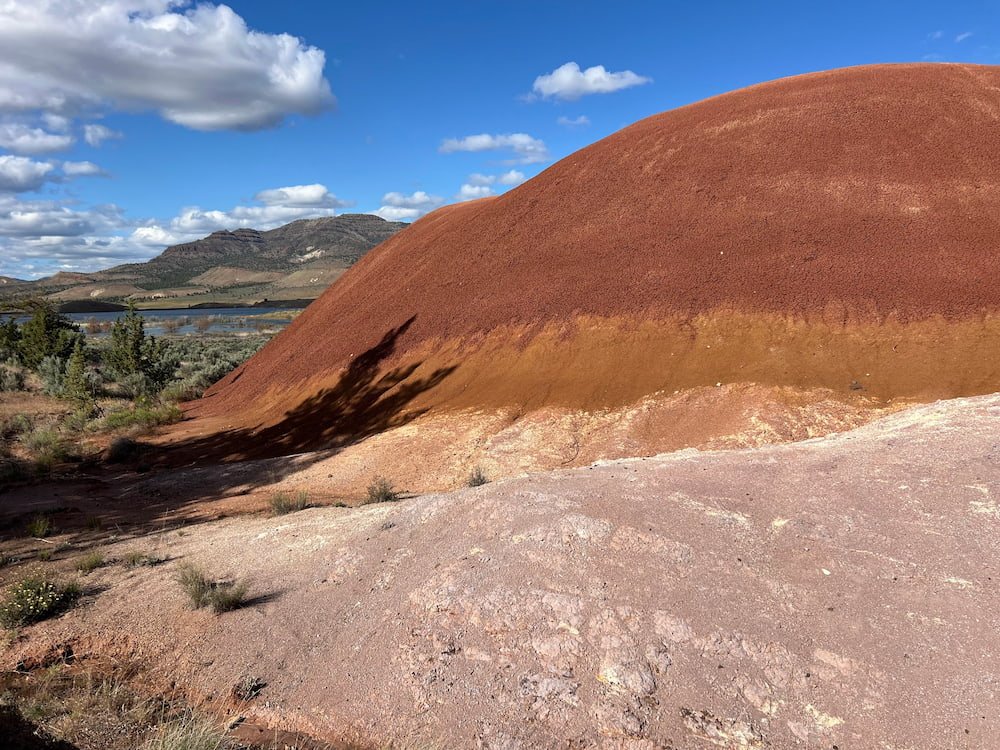
At the top of the trail, looking back to where we'd parked our RV, there's a spectacular view looking down the hills and a body of water below. Words and photos cannot describe how beautiful it was, with all the vivid colors in the afternoon sun.
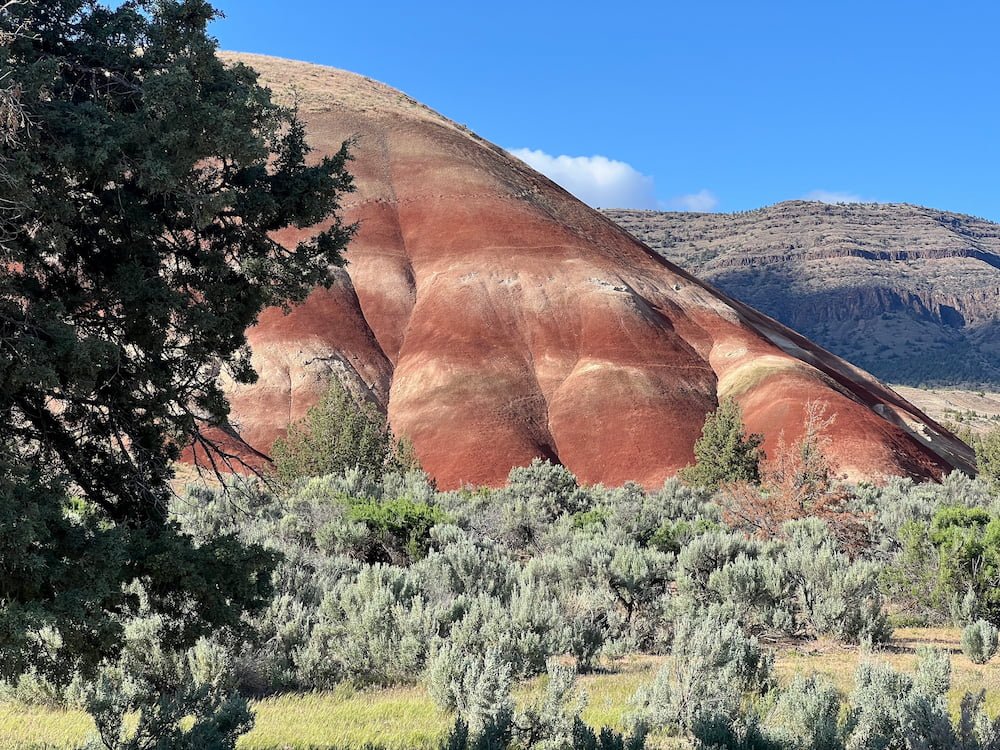

In the evening, iOverlander led us to an open area that seemed to be getting developed, as there were signs of private property nearby. We wanted to make sure that we were on public land, so were relieved when more campers came along to sleep nearby for the night. It also seemed to be near a hunting area, but not close enough to make us feel uncomfortable! It was pitch black that night (no light pollution), so one challenge Lisette faced was using the port-a-loo in the dark. At least she was able to go in peace, although she tried to keep the bright headlamp shining downwards to not attract any unwanted attention from mosquitoes!
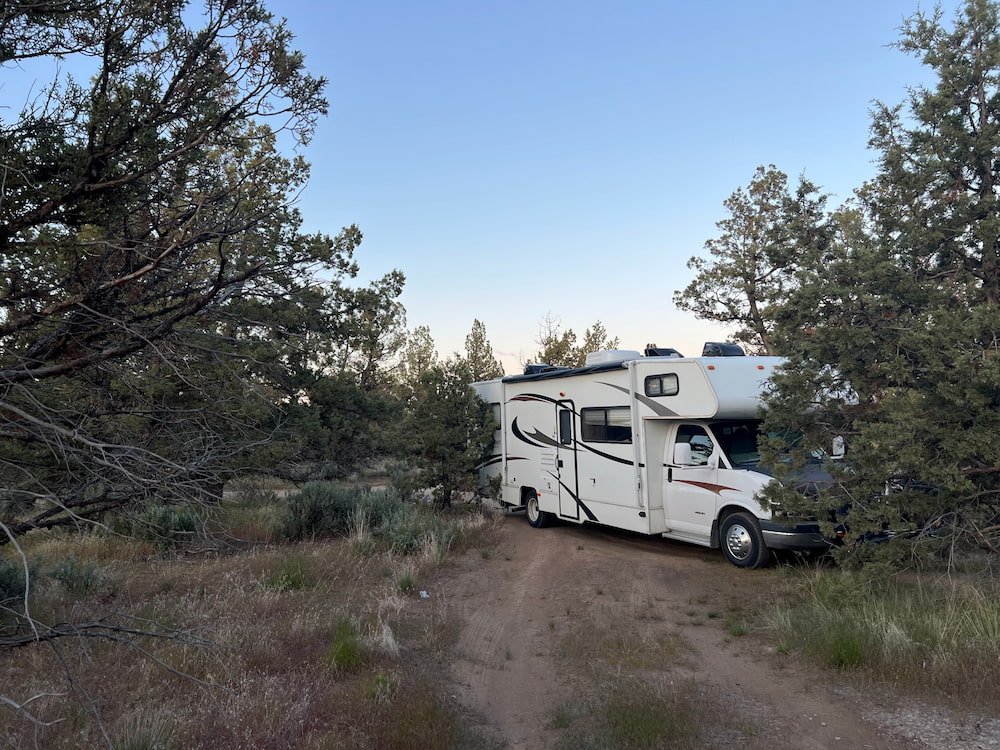
Route Map
